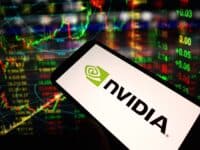

Alibaba Group Holding Ltd. (NYSE: BABA) has already reported its earnings on Wednesday. Its adjusted earnings of $0.79 EPS/ADS was on revenue of $5.14 billion, both beating the consensus estimates of $0.69 EPS and $5.03 billion in revenues of $5.03 billion. What is interesting here is that news of an SEC accounting probe reversed some of the original gains.
This issue of an SEC investigation might not have been as surprising as the notion that it was working with whistleblowers. What stands out here is that the growth in revenues also came with a substantial gain in expenses.
24/7 Wall St. would point out that it is not unusual for companies to see increased operating costs and behind the scenes costs go up during periods when they are grabbing for growth. Still, Alibaba is no longer as new of a company as it used to be and some of the cost hikes looked aggressive after sifting through Alibaba’s 10-Q filing.
Data was taken from the quarterly SEC filing, and we included the direct responses made on each point of the company made an exception on these numbers.
Alibaba’s cost of revenue for the September quarter was RMB 13.123 billion (about $1.968 billion) versus RMB 7.131 billion in the same quarter of 2015. Alibaba’s costs rose to 34% from 30%, and the company said:
Without the effect of share-based compensation expense, cost of revenue as a percentage of revenue would have increased from 30% in the quarter ended September 30, 2015 to 34% in the quarter ended September 30, 2016. The increase was primarily due to an increase in costs associated with our newly consolidated businesses, including Youku Tudou and Lazada, as well as costs associated with Tmall Supermarket.
Alibaba’s product development expenses were RMB 4.134 billion ($620 million) versus RMB 3.225 billion in the same quarter of 2015. This was supposedly tied to stock options, but that is up 28% nominally. The company said:
Without the effect of share-based compensation expense, product development expenses as a percentage of revenue would have decreased from 9% in the quarter ended September 30, 2015 to 8% in the quarter ended September 30, 2016, reflecting operating leverage.
Alibaba’s sales and marketing expenses were RMB 3.878 billion (US$581 million) versus RMB 2.564 billion in the same quarter of 2015. That is up 51% on a nominal basis, but Alibaba’s SEC filing said:
Without the effect of share-based compensation expense, sales and marketing expenses as a percentage of revenue in the quarter ended September 30, 2016 would have remained stable as compared to the same quarter of 2015.
Then there is the general and administrative expenses. This rose to RMB 2.815 billion (US$422 million) from RMB 2.128 billion in the same quarter of 2015. That is a gain of 32% on the surface, but Alibaba’s filing said:
Without the effect of share-based compensation expense, general and administrative expenses as a percentage of revenue in the quarter ended September 30, 2016 would have remained stable as compared to the same quarter of 2015, reflecting operating leverage.
As you can tell by all these comments above, Alibaba’s share-based compensation expense has changed. Still, the company said that its share-based compensation expense as percentage of revenue fell to 12% from 14% a year earlier. Its total share-based compensation expense included in cost and expense items above was RMB 4.251 billion (US$637 million) — a gain of 34% versus the RMB 3.164 billion figure a year earlier.
Alibaba broke out some of its metrics individually by unit for how it got to 55% total growth. These were seen as follows:
- Revenue from core commerce increased 41% versus a year ago to RMB 28.493 billion ($4.273 billion).
- Revenue from its cloud computing business was RMB 1.493 billion (US$224 million) — up 130% versus a year ago. This was driven by an increase in the number of paying customers to 651,000 (up 108%) and also by an increase in their spending, reflecting increased usage of services.
- Revenue from Alibaba’s digital media and entertainment business in the quarter was RMB 3.608 billion ($541 million) — up 302%, due to the consolidation of Youku Tudou and also to an increase in revenue from mobile value-added services provided by UCWeb (mobile search, news feeds and game publishing).
- Revenue from the company’s innovation initiatives was RMB 698 million ($104 million) — up 78%, primarily due to an increase in revenue from various new initiatives.
Alibaba shares were down 2.6% at $98.51 at the official closing bell, but the stock was down 0.25 at $98.30 in Wednesday’s after-hours trading session. Its 52-week range is $59.25 to $109.87 and its consensus analyst price target is $116.33.
Sponsored: Attention Savvy Investors: Speak to 3 Financial Experts – FREE
Ever wanted an extra set of eyes on an investment you’re considering? Now you can speak with up to 3 financial experts in your area for FREE. By simply
clicking here you can begin to match with financial professionals who can help guide you through the financial decisions you’re making. And the best part? The first conversation with them is free.
Click here to match with up to 3 financial pros who would be excited to help you make financial decisions.
Thank you for reading! Have some feedback for us?
Contact the 24/7 Wall St. editorial team.



